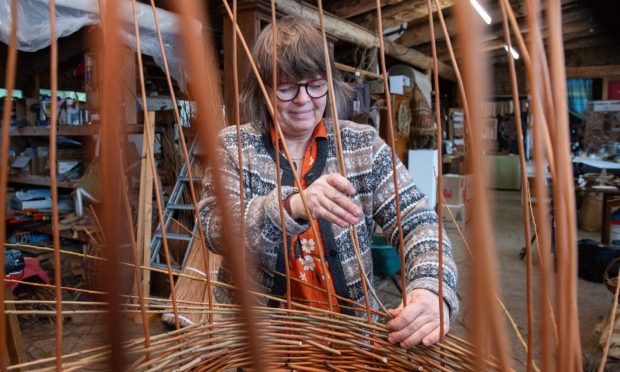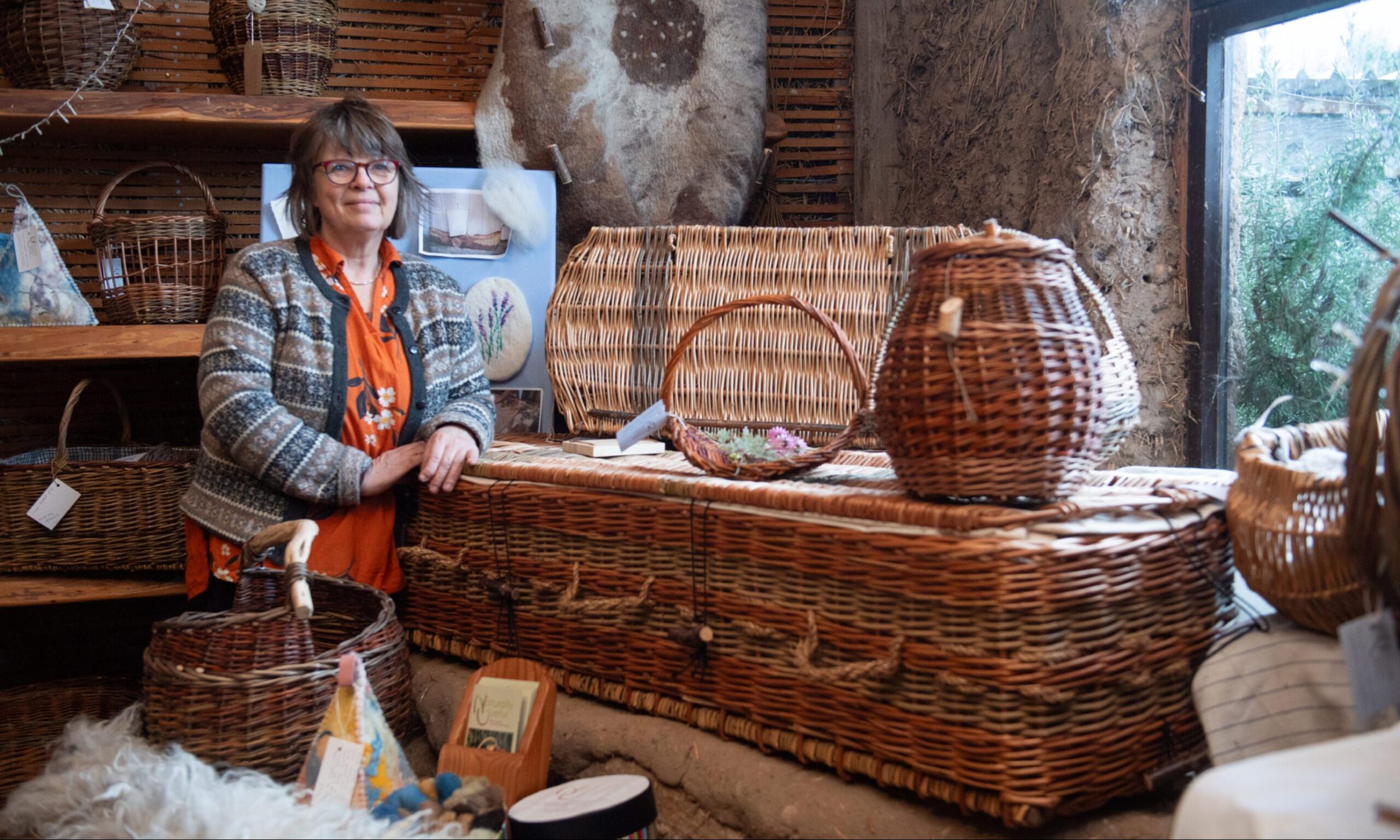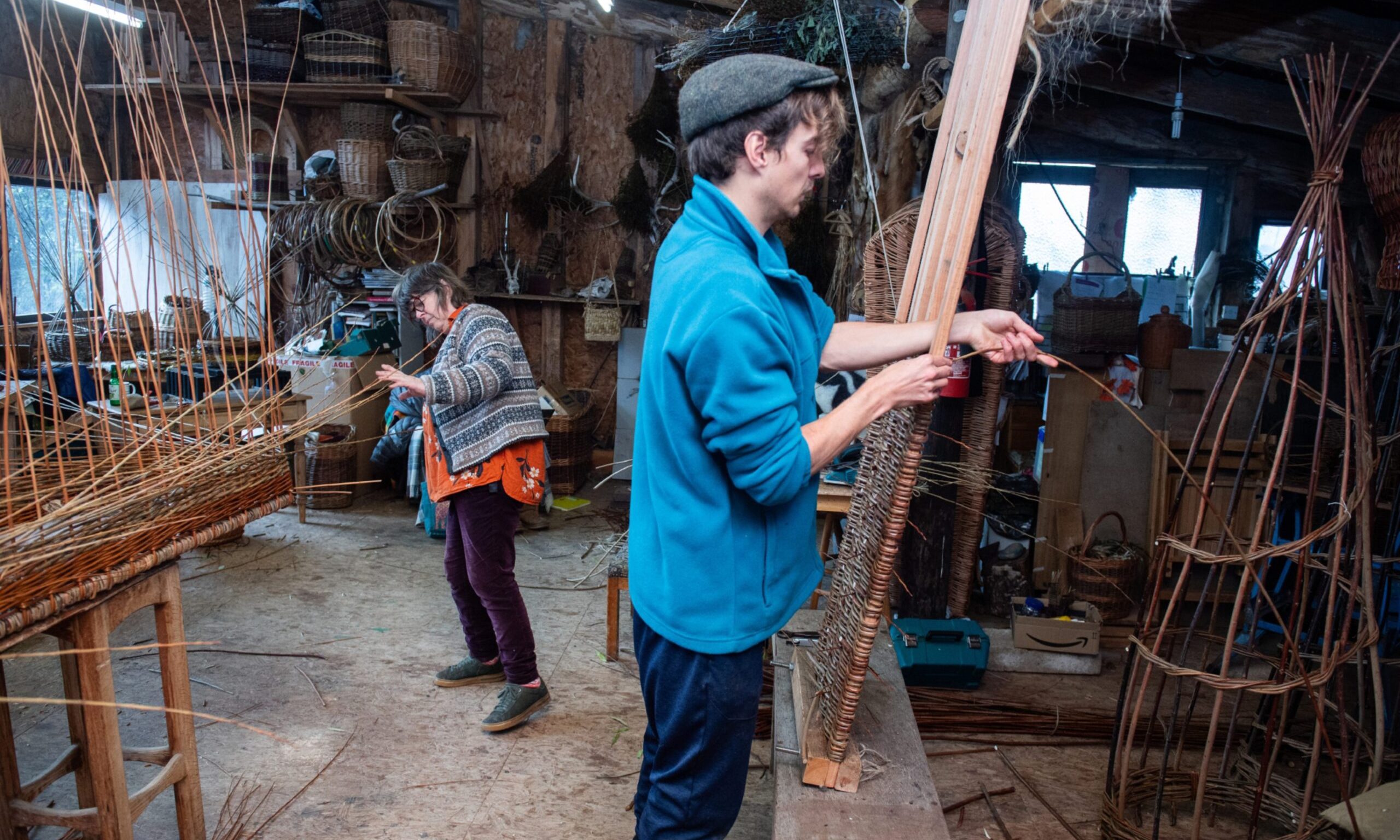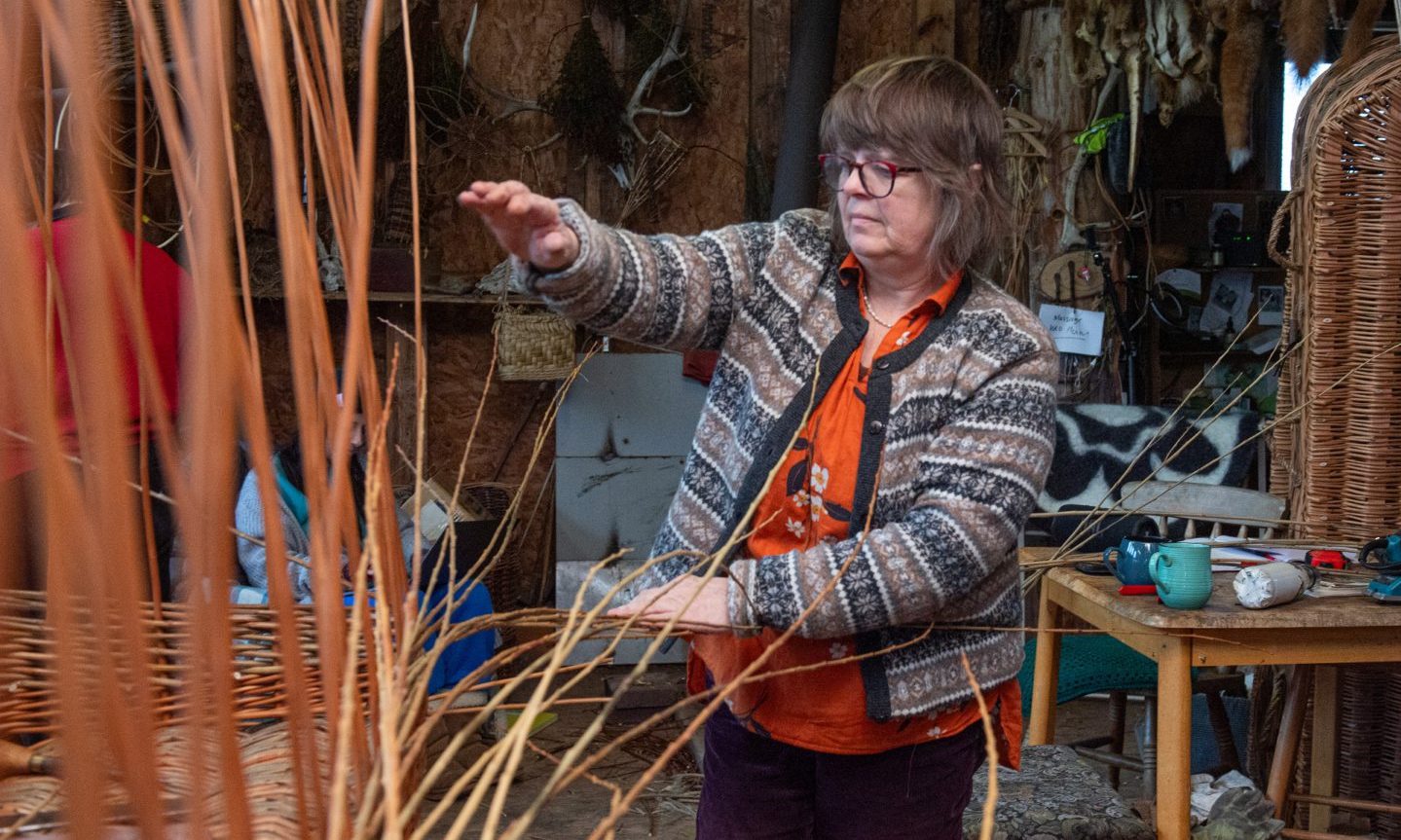Karen Collins launched her Naturally Useful business more than a decade ago making strong willow baskets of different shapes and sizes.
In the last seven years though she has found a market weaving larger items for a completely different purpose – coffins.
After initially making them herself to sell, someone asking to make their own opened up a new market.
Now the Rafford-based workshop, near Forres, helps dozens of people make their own coffins.
Clients range from those who have been told they have months to live to those who use them as storage until the time comes.
Why people want to make their own willow coffins
Karen first started making willow coffins for her Naturally Useful business after being with people in their final moments.
The experience sparked an interest in the area, and she enrolled on a course to expand her basket-making skills to include coffins.
She said: “I absolutely love making them. I made one, it sold quickly, so I made another and it sold within weeks.”
Karen now has two members of staff helping her to guide others to make their own willow coffins, a process that can take four days.
She added: “Some people come to us because they have been told they are dying and they want to make a coffin before they become too ill.
“I’ve been on a counselling course to help people with that. Those that are close to death definitely have a process that goes on within themselves. Stories start to come out about their lives.
“I think some people want to take charge of the process too and realise they don’t actually need an undertaker to do everything.”
What do you do with a coffin if you’re not dying?
For those who are nearing the end of their life, the desire to have a coffin ready for your burial or cremation is understandable.
However, Naturally Useful also has crafters eager to make their own willow coffins who have lots of life to live.
And in those circumstances, finding something to do with them in the interim period has led to creative solutions.
Karen said: “I encourage people to keep them in the attic if they’re not planning on using it for a few more years, anywhere dry really.
“I know one person who has been using it as a coffee table though.
“There’s also a gentleman who has one in his garage. He’s been going through his house getting rid of things and has been keeping the best things in his coffin.
“I know people who keep important files and documents in theirs too so they know where they are.”
‘Completely sustainable way to be buried’
All the willow used to make the coffins by not-for-profit company Naturally Useful is grown on their land at Marcassie Farm.
The team was joined by volunteers earlier this month to complete this year’s harvest in freezing temperatures.
As well as coffins, the workshop also makes woollen shrouds to wrap a body in, which they also show people how to make.
Karen said: “Sometimes people put their own designs on the shrouds, just to give them a more personal touch.
“Shrouds are a long-standing traditional way to be buried. In the past, wooden coffins were for the wealthy and the majority would have been buried in this way.
“Our wool comes from local sheep flocks and we grow our own willow. It’s the most sustainable way to be buried.”




Conversation